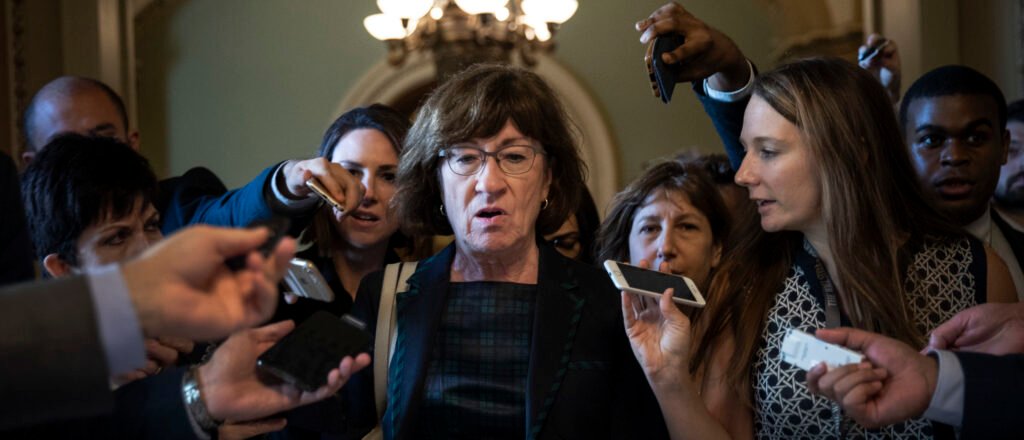Sen. Susan Collins Opposes Amendment Affecting Medicaid for Undocumented Immigrants
Senator Susan Collins of Maine, a Republican, recently voted against an amendment aimed at preventing undocumented immigrants from receiving Medicaid benefits.
Collins cast her “no” vote for an amendment proposed by Senator John Cornyn from Texas regarding the “Big, Beautiful Bill” (BBB) on Monday.
As reported by Politico, the Senate voted against a procedural motion related to Collins’ amendment, which proposed increasing funding for rural hospitals from $25 billion to $50 billion over a five-year period.
The plan also includes new tax obligations for individuals earning over $25 million and couples making more than $50 million annually, starting next year.
Before the vote, Collins expressed concern about the financial struggles facing rural providers. She noted that many rural hospitals and nursing homes are under significant financial stress, with closures already occurring and more on the horizon. “This amendment will help keep them open and care for people living in rural communities,” she added.
The Senate ultimately did not pass amendments that sought to reduce Medicaid funds for undocumented immigrants involved in specific crimes. Notably, Collins was the only Republican to oppose these amendments, while several Democratic senators supported them.
After the vote, Collins criticized her Democratic colleagues for not supporting her proposal. “They have repeatedly complained about the distribution of this bill,” she remarked. “But when I tried to address those issues, they adopted a hypocritical stance.” She mentioned that her decision on the overall bill is still pending and that the amendment’s outcome wouldn’t sway her choice.
According to Politico, the legislation alters how much a state may tax hospitals—a strategy designed to reduce additional federal Medicaid funding without impacting a state’s budget directly. Hospitals typically accept these taxes since they often receive substantial reimbursements.
Some conservatives have labelled this approach a form of “money laundering,” claiming states might misuse federal Medicaid funds for unrelated expenses. However, proponents of the system argue that provider taxes are crucial for the survival of rural hospitals.
Collins had support from 18 Senate Republicans for her late-night revision, which would resurrect Trump-era tax cuts for individuals over $25 million and couples over $50 million. Her amendment aimed to double the Rural Hospital Fund and increase the highest tax rate back to the pre-2017 level of 39.6%.







